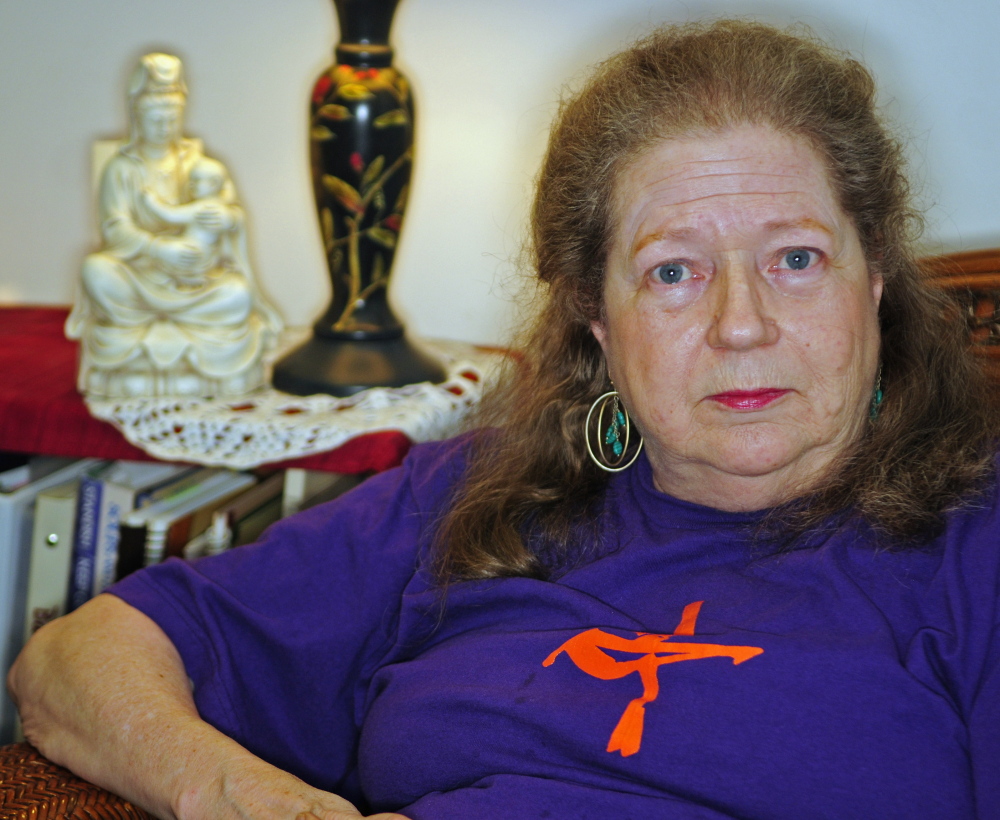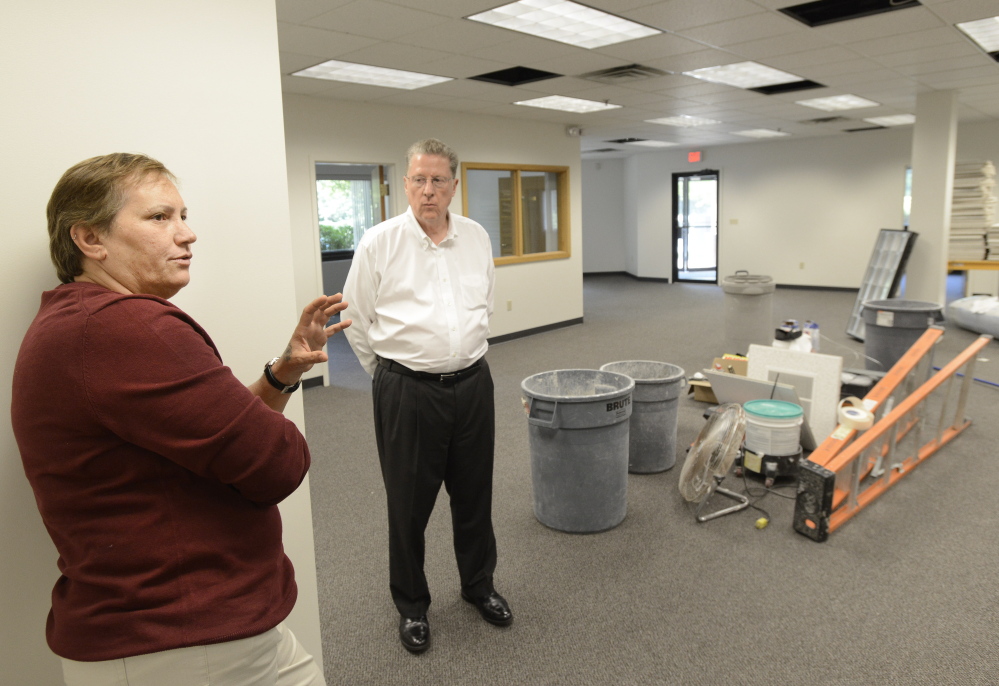Nancee Campbell got to her doctor’s appointment on time Friday morning, something that bodes well considering all the missed and late rides she endured during the last year with the MaineCare transportation program.
Friday was the first day new ride brokers took over for the troubled Connecticut-based Coordinated Transportation Solutions, which lost $28.3 million in state contracts to arrange MaineCare rides because of poor performance evaluations by the Maine Department of Health and Human Services. Before Aug. 1, Coordinated Transportation Solutions had served patients in most of the state outside the York County and Bangor regions.
Patients, state officials, transportation groups, medical providers and legislators were hoping Friday would mark the start of substantial improvement to a program that affects 45,000 low-income families. Since last summer, the program’s clients have missed thousands of rides to doctor’s appointments, dialysis, physical therapy, cancer treatment and day camps for developmentally disabled children.
“So far, so good,” said Campbell, whose ride on Friday was coordinated by Bangor nonprofit Penquis Community Action Program.
The state says it is keeping track of the new providers’ performance.
“We’ve been monitoring call volume, missed calls, complaints, ride delivery and other aspects of performance,” DHHS spokesman John Martins wrote in an email. “We will continue to monitor all of these elements closely during this time of transition and beyond. We have seen good results on Day 1.”
Campbell, of Augusta, is glad Coordinated Transportation Solutions is gone. The company never improved its performance, she said, and even over the past two months many of her rides were late, to the point that her appointments were canceled.
“It was a debacle, no question about it,” Campbell said.
The ongoing problems caused an uproar, with many complaining to state officials, lawmakers and the news media. The Legislature approved a bill to overhaul the MaineCare rides system, but was unable to override a veto by Gov. Paul LePage. Administration officials insisted the system did not have to change, just the contractor.
On Friday, Atlanta-based LogistiCare, which began serving York County in 2013-14, took over four territories where CTS previously operated, including the Portland and Lewiston regions, after winning one-year contracts from the state. Penquis won contracts to serve the Bangor and Augusta regions for about $13.5 million. Another nonprofit, Waldo Community Action Partners, earned a $3.8 million contract to serve the midcoast.
At LogistiCare’s offices in South Portland on Friday, where the company is opening a new call center, officials were still unpacking new chairs, and the 50 or so employees were treated to doughnuts.
“We used the doughnuts as a sweetener in case we had a bad day,” said Myra Orifice, LogistiCare’s general manager for Maine.
Operations appeared to be glitch-free on Friday, Orifice said, with about 4,800 rides arranged. Numbers on complaints about LogistiCare’s rides since taking over the additional territories were not available Friday because the companies report the complaints to DHHS on a monthly basis.
The company’s call center is located in a temporary space off of Southborough Drive, and renovations to LogistiCare’s permanent office space in the same building will be complete in a few weeks.
“It’s going so well it almost makes me afraid,” Orifice said.
The launch of the program last year was troublesome for LogistiCare’s York County operations and for Coordinated Transportation Solutions, with thousands of missed rides and volunteer drivers quitting in frustration. While LogistiCare improved its performance by the fall, according to DHHS officials, Coordinated Transportation Solutions continued to struggle, with many Mainers complaining they were continuing to miss rides.
Robert Harrison, a LogistiCare vice president, said his company made a number of changes throughout the year, and anticipated potential problems better than last year. For example, LogistiCare boosted the volunteer driver and transportation agency network, increased the number of LogistiCare-owned vehicles to serve as back-ups and relied less on taxis, which were the cause of some complaints.
“It was very encouraging,” Harrison said of Friday. “We knew what to expect.”
Penquis CEO Kara Hay said her group leaned on its experience with transportation and prepared extensively for Friday, scheduling more than 1,000 trips in one day. Hay said Penquis worked closely with Kennebec Valley Community Action Program to start up the program.
“The Penquis and KVCAP staff teams worked very hard to ensure that today’s first day of brokerage services ran as smoothly as possible, and their efforts showed great results,” Hay said in a statement.
Before August 2013, a patchwork of local nonprofits coordinated and provided rides for MaineCare patients, but the system lacked accountability, according to DHHS officials. In response to federal guidelines requiring more transparency and a better accounting of rides to prevent fraud and abuse, DHHS created the regional brokerage system.
Harrison said DHHS officials were monitoring start-up issues better this year compared to last year.
State Sen. Colleen Lachowicz, D-Waterville, said that while she believes a system using more Maine nonprofit groups arranging the calls would be better, the bottom line is if people are getting their rides, it’s an improvement.
“I’m hoping this works and people can get their rides to critical medical appointments,” she said.
Send questions/comments to the editors.





Success. Please wait for the page to reload. If the page does not reload within 5 seconds, please refresh the page.
Enter your email and password to access comments.
Hi, to comment on stories you must . This profile is in addition to your subscription and website login.
Already have a commenting profile? .
Invalid username/password.
Please check your email to confirm and complete your registration.
Only subscribers are eligible to post comments. Please subscribe or login first for digital access. Here’s why.
Use the form below to reset your password. When you've submitted your account email, we will send an email with a reset code.